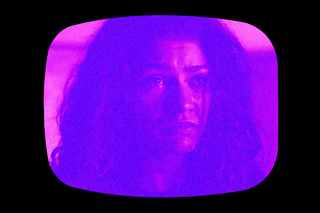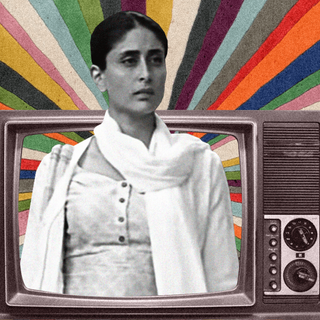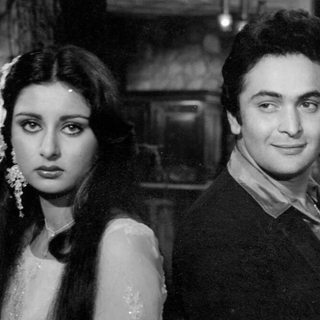
Rue Is Euphoria’s Beating Heart
Season 2, episode 5 redeemed the whole season when it found its way back to Rue’s grief.

This article contains spoilers for season 2, episode 5.
It is easy to forget that when all is said and done, Rue Bennett is a child in grief. In the time since her father dies, Rue and Gia confront a fork in the road that takes them in different directions. One enters a road full of potential, the other toward destruction. Nobody knows if these roads will ever converge again.
Meanwhile, Rue leaves a trail of hearts behind in her path to ruin. She doesn’t mean to, as much as she pretends otherwise. In episode five, we see Rue hold her heart in her hands, cracked open with life pouring rapidly out. Not much can be done to save her, though god knows that people have tried.
Gone is the smug satisfaction and bravado from episode three this season, where she shows off how she lies and manipulates and cheats to sustain her substance abuse. Gone is the person with the glint in her eyes about having gamed the unofficial system for access to drugs — for now. In episode five, what many are calling the vehicle for Zendaya’s second Emmy win, Rue is stripped down to a raw vulnerability that is painful to witness. Her loved ones stage an intervention, hoping to end her season-long relapse. She lashes out like a caged beast, her words carrying jagged edges that cut deeply, her face spitting contempt at those who love her the most. This, before crumpling into a shivering, whimpering heap that finally, momentarily, allows herself to be taken care of.
Meanwhile, Gia’s resilience is tested to limits it almost never has before. Leslie tries to hold on to her daughter, on death’s door, willing her to find her way back to herself. Nobody knows who Rue is anymore, least of all Rue, who is mostly looking for her next fix.
Euphoria is Rue’s story. And Rue’s story is that of a tussle between love and unresolved grief. She tries to deny that her substance abuse is a result of her grief, but every single drug-induced blackout sends her “home” — to a gospel song encapsulating her soaring grief, and funeral service where her hurt is on full display, with Rue breaking each time from the weight of how much she misses her father. How soon he was gone, how she failed his spirit and memory — are thoughts we see her struggling with.
This being Rue’s show, Euphoria spends half a season meandering around an endless love triangle and characters whose inner lives are not worth knowing about. Between a Cal Jacobs and a Rue, it is the latter we root for. Both behave terribly toward their families, but only one is redeemed by the love, compassion, wit, humor, and kindness in her heart. All qualities that have shined through in the less dark moments, when she wasn’t consumed by pain and torment.
Related on The Swaddle:
‘Euphoria’ Is the Wokest Show to Fail the Bechdel Test
By being generous with tender backstories for characters who have never proven themselves to be sympathetic, Euphoria lost its way from what keeps the show pulsating with life. Euphoria isn’t about finding nuance in abusive men’s behavior. It isn’t about beating to death a tiresome conflict between best friends over a douchebag guy. It isn’t the “dark side” of high school a la drugs, sex, and techno beats with lush lighting. It is, at its heart, a show nurturing the broken spirits of young people forsaken by the world. At its best, Euphoria takes their pain, joy, passion; their soaring highs and their crashing lows, seriously. It is about what it means to love and be loved as a difficult person. Rue embodies everything about Euphoria that strikes a nerve. Not many are teen addicts, perhaps, but that isn’t the point. It’s about Rue being someone who is worthy of love, despite what she may believe about herself.
Through episode five, we chase Rue in a grand theft auto-esque sequence as she jumps over fences, robs houses, stumbles her way through parking lots, finding her way from one trusted person’s house to another, and repeatedly fails each of them. Sometimes, love just isn’t enough.
This episode is about Rue walking a tightrope — on one side is her people, whom she has loved and whose love she receivedin the past. On the other is a big, murky, unknown, where no amount of love is enough to save her. She is a child in crisis: realizing acutely how vulnerable she still is, how much she needs and wants to be looked after, while also knowing how beyond the pale she has gone, how much of her claim to innocence she has now lost.
And so, she ends up in the worst possible house, where there is no feeling at all, at risk of so much worse than rock bottom. Despite all the horrible things she has said to her mother and her sister, despite not being the daughter and sister they respectively deserved, we are terrified for Rue. We root for her. We desperately want her to get out of this spiral that only seems to be getting deeper. We will her to retrace her steps back home, and let her be the child in need of love and care that she needs to be.
Rue is the sun holding so many lives — and loves — in orbit. Without her, they all collapse. Without her redemption, nobody can move forward. Rue’s battle with grief and addiction is everyone else’s battle for a future to look forward to. And so, for her sake and for everyone else’s — especially Gia’s — she has to make it. We can only watch in despair as she seems to slip through the cracks, knowing she will inadvertently take others with her into the abyss.
Euphoria can be, and very often is, a laughably silly show that tries to do too much with teen lives. But not when it comes to Rue. She repeatedly puts her own life at risk — all while desperately clinging to survival, praying that she will somehow make it. By tapping into the feeling of protectiveness that audiences have cultivated for this character, Euphoria drives at something that keeps people coming back. It’s in recognizing the vulnerability of teenagers at the mercy of varieties of violence, struggling to find their place in an increasingly darker world. All the mental illness, substance abuse, and risk-seeking behavior don’t come from nowhere. But it is with Rue’s character that Euphoria not only understands what is plaguing these hopeless teenagers, but also understands its own heart and soul.
Rohitha Naraharisetty is a Senior Associate Editor at The Swaddle. She writes about the intersection of gender, caste, social movements, and pop culture. She can be found on Instagram at @rohitha_97 or on Twitter at @romimacaronii.
Related


Can We Move On: From the Trope of the Woman Who Has a Makeover to Match a Big Life Change
